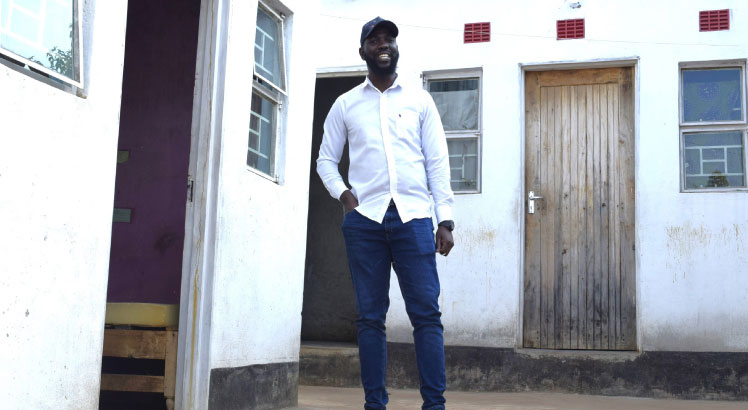Banking on youth business
At the age of 27, a typical youthful Malawian is expected to be searching for employment or settling into a job.
However, Brian Sinya Msiska took a different path.
He is not on a job hunt; not even an employee. In fact, he has never been one.
Unlike most of his peers, he is an entrepreneur, the founding managing director of Brisim Medical Suppliers in Lilongwe.
Msiska graduated in 2019 with a degree in medical microbiology from the Malawi University of Science and Technology (Must)
The entrepreneurial knowledge acquired during his studies propelled him to establish his own business.
“I have never worked for anyone and I do not plan to work in a hospital setting because I can build on the knowledge I acquired,” he explains.
While the know-how is vital for young entrepreneurs, securing the financial support needed to turn brilliant ideas into life-changing goods and services can be challenging for many.

This is where the National Bank of Malawi (NBM) plc steps in to provide funding for nurturing these ideas into life-changing businesses.
Msiska is one of the beneficiaries of the bank’s Step-up Entrepreneurs scheme. He obtained a K5 million loan to expand his business.
He narrates: “At first, I was hesitant to approach the bank because I had heard the challenges [some entrepreneurs experience in the process] of taking a loan.
“One day, while making a cash deposit, I inquired about the loan process. To my surprise, I was granted the loan after just a few days after applying.”
Now Msiska can afford a smile and serve his customers promptly.
Before securing the loan, he was haunted by delays to supply buyers.
“My business has grown significantly and the flexible repayment options have allowed me to manage the loan effectively,” he states.
The loan has also transformed his life and family.
“I can now provide for my family and support my younger brothers. I have purchased a house in Lilongwe, a four-wheel-drive vehicle for business and even have a Nissan Tiida as my personal car.”
The proceeds of his business also pay tuition fees for his brothers, including a third year student at Nalikule Teachers Training College.
Similarly, Joseph Kachoka, the owner of Bestars Investment, is on the rise, operates students’ hostels in Chikanda Township near the University of Malawi in Zomba.
At 31, he paved his own way through this venture which also benefited from the NBM financing scheme for entrepreneurs.
He narrates: “I started my business when I was in Standard Eight, gradually expanding until I acquired land at the Catholic University of Malawi in Chiradzulu and [near Unima] in Chikanda.
While constructing the hostels, I needed ffinancial support to complete the project for the students’ accomodation. When I learned about the loan offered by National Bank of Malawi, I promptly applied and I was granted without obstacles.”
Kachoka is now a happy landlord for learners at risk of lodging in degrading boarding facilities as the universities cannot provide adequate rooms for all selected students.
“I am considering securing additional funding beyond my initial amount,” he says.
As the world celebrated the International Youth Day on August 12, the two young entrepreneurs shared their stories to inspire their peers and potential entrepreneurs.
Malawi has a youthful population with more than half (51 percent) aged below 18 and three in every four below 35, according to the 2018 census.
Harnessing the Population Dividend, the national blueprint to transform the youthful majority from dependency to economic productivity singles out investment in quality education, skills development and creation of decent jobs as game changers.
But the youth-led small and medium-sized businesses face limited access to financial services.
Financial inclusion has become the mantra of the banking sector, but the enterprising youth feel sidelined due to a percieved lack of experience and winning ideas.
For many, finding the support necessary to foster their ideas is an uphill battle.
During a recent workshop in Lilongwe, financial and investment advisory specialist Akuzike Kafwamba pointed out that the majority of local SMEs struggle to expand due to insufficient capital and technical expertise.
“Many financial institutions demand collateral before funding a project. This poses challenges for budding entrepreneurs, often resulting in frustration and the abandonment of their business concepts,” he observed.
Wyson Kayira of NBM says the Step-up Entrepreneurs is more than just a loan.
“It is a package of financial services that aims at empowering the youth and helping them achieve their goals,” he says.
Apart from business financing, the scheme includes technical trainings and workshops and affordable digital channels for transactional banking.
“The good thing about business financing under this package is that it is reasonably priced and with less stringent terms and conditions like not demanding collateral,” says Kaira.





